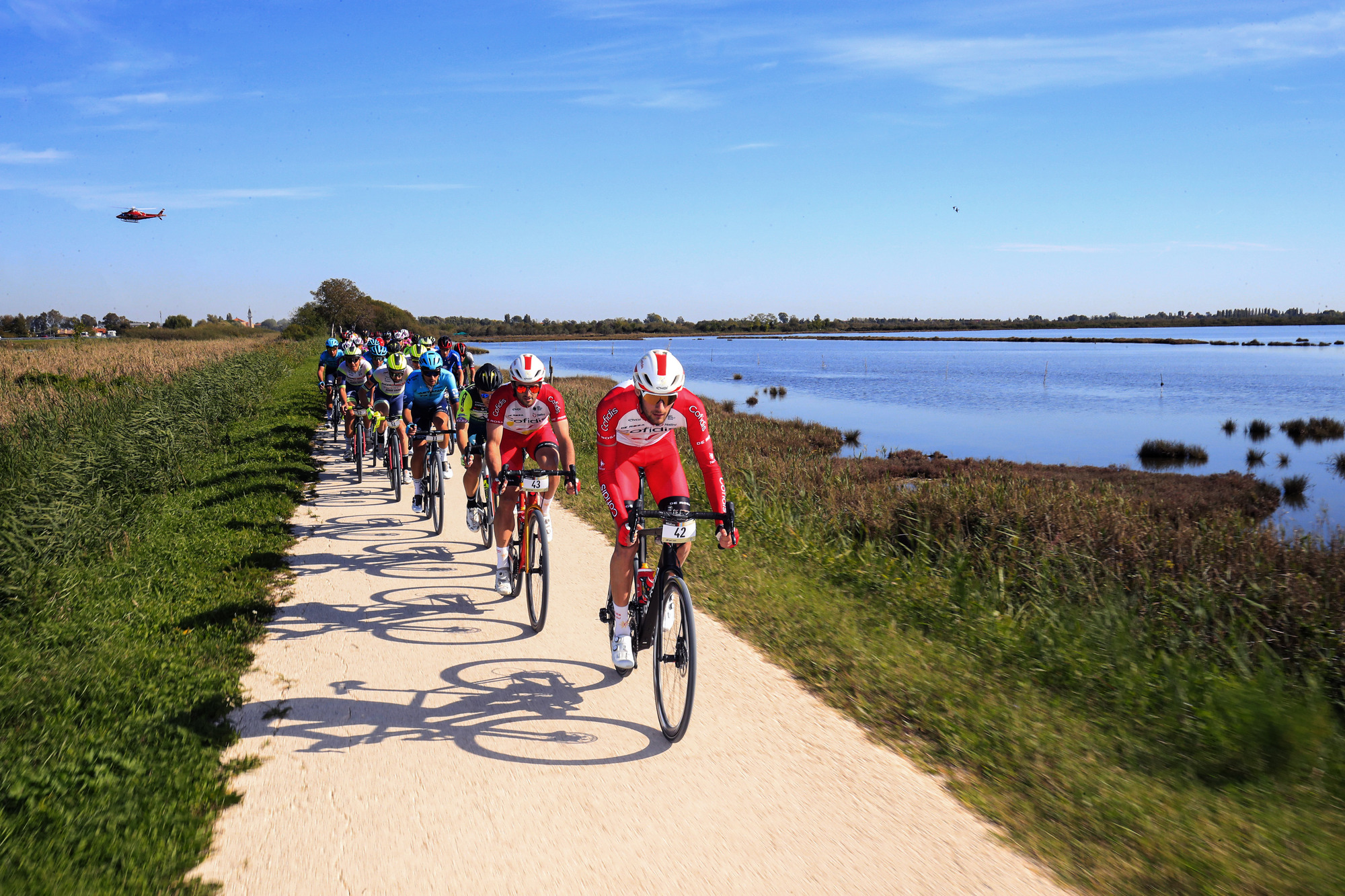Nathan Haas blog: Stop calling it alternative
'Let's put gravel, adventuring, mountaineering, and pioneering on the same page as road'

Nathan Haas is a road pro with French team Cofidis. The ex-mountain biker recently took part in the first 'pro-only' men's gravel race, Serenissima Gravel. In a blog for Cyclingnews, he talks about the rise of 'alternative' racing and argues that – road or gravel – it's all cycling.
To be a professional cyclist, you have to fit a mould. You have to shave your legs, aim to get back to your birth weight, never walk anywhere and by no means ever give journalists an interesting interview. It's race tactics only.
Enter Lachlan Morton.
Lachlan changed modern cycling. His look, his style, his films, but most of all, his lack of following the standard eat, train, sleep, repeat model supposedly needed to be a professional cyclist.
Some say it's his artistic mindset, or his dislike for the norm, but I think it's simpler. Lachlan just likes riding his bike. Sometimes that means training full gas, sometimes it means racing Grand Tours, and other times, it's just leaving home with a few items of clothes, a tent and vague plans.
Johnathan Vaughters and his EF team have capitalised on this cool, seeing that there is a whole new audience following the team, and professional cycling for that matter, that normally wouldn't have. Think the Happy Gilmore of cycling. But with less swearing.
Cycling's sponsorship-based economic model means one thing. Teams need to provide ROI (return on investment) for sponsors' marketing budget.
So, it begs the question: If a team like EF, who are easily outside of the top 10 WorldTour teams in terms of performance but place easily top three in terms of overall exposure and popularity because they have cleverly tapped into the 'alternative' cycling model, if it's working this well on a global marketing scale, is it fair to still call it alternative?
I recently raced in the world's first 'pro only’ gravel race, Serenissima Gravel, as part of the new race series in Veneto, Italy. It was classed as a test event, whereby riders from professional teams race gravel bikes head to head on a 125-kilometre point-to-point course, completely unsupported, tubes in pockets and tyre plugs in hand, to explore the possibility of pro teams essentially adding an alternative program into the regular pro cycling season.
Many gravel specialists weren't fans of the overall concept, and even pointed the finger at the organization for essentially ruining the spirit of the new sport.
I could see their argument, in that gravel is essentially a counterculture to the seriousness of road racing, where no teams compete, the rules are flexible at best, and participation is key to the event's overall vibe. To boil it down, the complaint was that this new format was no longer alternative, and simply, a mainstream takeover.
Dare I argue that the concept of alternative is relative at best? For those who've only ever raced Unbound, sure this is more commercial. But for professional road riders like myself, this was a very welcomed change to an otherwise very typical season. A season altered by a new format, and therefore, quite alternative.
Whilst the event only had 37 starters, the race was hardcore. I'd challenge anybody to find a gravel race with 37 riders at a pro's level of fitness. But this begs another question, would the race be lesser having 2000 enthusiasts behind us on course? Or would that add to the vibe of the event? It's hard to say, and maybe I won't have a fair opinion until I've done more gravel racing to compare the two styles of race. That of the mass participation model, and the pro only.
Either way, I don't think we should judge organizers for thinking outside the box to put on a test event, which by definition, is to test whether this new format of an already existing disciple might attract a wider audience.
So why call it alternative? Why put it in a box that in any way limits the scope of a discipline? Let's look at Lucinda Brand as an example: she races a full road season with Trek-Segafredo and is inarguably one of the best riders in the world on the road. She then goes and smashes a full cyclo-cross season, wins the shit out of those too, but no one calls her alternative for racing 'cross.
In the same vein, when Tom Pidcock or Mathieu van der Poel race cross-country mountain biking at the Olympics we don't call it alternative, even though it isn't on the road.
I started my career on a mountain bike and I think many of the things I love about gravel hark back to those days – the laid-back attitude, the level playing field, the essence of success not being confined by the place you are in when you cross the finish line.
But I don't like the idea of making it alternative. Let's put gravel, adventuring, mountaineering, and pioneering on the same page as road. If you look at it from an ROI, it for sure is already.
Alternative somehow denotes 'plan B', when for so many it's becoming a first choice. Let's keep the vibes, the good spirit and the fun, raise the bar on the competitions, and keep it growing. How about nothing is main, and nothing is alternative: it's all just cycling and let's ride.
Get The Leadout Newsletter
The latest race content, interviews, features, reviews and expert buying guides, direct to your inbox!
Nathan Haas turned his back on the WorldTour to dive into world of gravel. After a decade at the top echelon of professional road racing, the Australian is answered the off-road call in 2022, teaming up with Colnago to race and ride as a privateer on the burgeoning global gravel scene. He'll be documenting his experiences for Cyclingnews along the way, in his own inimitable style.